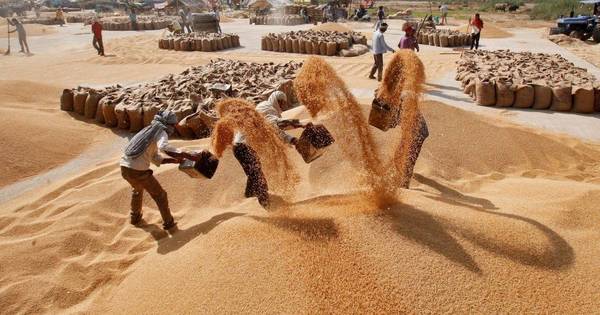News18
Subscribe to our Telegram channel for our latest stories and breaking news.
The ban is effective immediately as a scorching heatwave has curtailed the output of the crop.
The Indian government said the ban on overseas sales is implemented “in order to manage the overall food security of the country and to support the needs of the neighbouring and other vulnerable countries”.
Wheat prices in India have risen to record highs where in some spot markets they hit INR25,000 (RM1,419) per tonne, well above the government’s minimum support price of INR20,150 (RM1,144), Reuters reported.
“It was not wheat alone. The rise in overall prices raised concerns about inflation and that’s why the government had to ban wheat exports,” a senior government official was quoted as saying in the report.
The move to ban overseas shipments is not permanent and could be revised, but the decision is likely to fuel hunger in poor consumers in Asia and Africa that depend on imports of the crop.
However, exports will still be allowed to countries that require wheat to meet their food security needs and based on the requests of their governments, India’s directorate-general of Foreign Trade said.
According to Bloomberg, the decision to ban wheat exports highlights India’s concerns about high inflation, adding to a spate of food protectionism following Russia’s invasion of Ukraine on 24 February.
Governments around the world are seeking to ensure local food supplies with agriculture prices surging. Indonesia has halted palm oil exports, while Serbia and Kazakhstan imposed quotas on grain shipments.
The ban is likely to also affect the wheat prices in Malaysia as India is one of the major countries from where Malaysia imports the crop. Last year, Malaysia imported USD8.29 million (RM36,459,420) worth of wheat and meslin from India. In 2020, Malaysia imported a total of USD333 million (RM1,464,534,000) in wheat from several countries.
While Malaysia imports wheat primarily from Australia, the US, Ukraine, Canada, and Argentina, the war this year has meant that the country was relying on India to fulfil its wheat requirements.
“The Indian ban will lift global wheat prices. Right now there is no big supplier in the market,” Reuters quoted a dealer as saying, with another adding that they had not expected the ban on exports until August.
“If everyone starts to impose export restrictions or to close markets, that would worsen the crisis. We call on India to assume its responsibility as a G20 member,” German agriculture minister Cem Ozdemir said.



